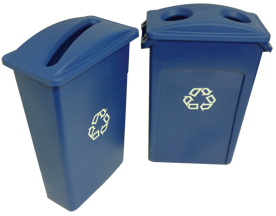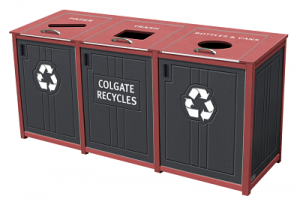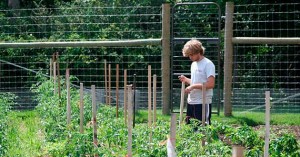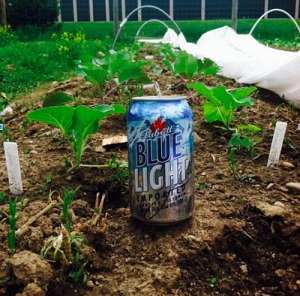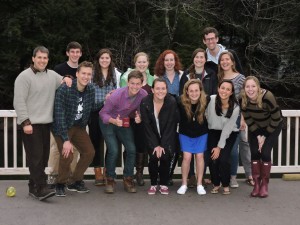By Lindsey Sagasta ’16 (Buffalo, NY)
Knowing from experience, selecting first-year courses is pretty daunting. By the time you graduate Colgate, you must have completed courses in all of the areas of inquiry to satisfy the Liberal Arts Core Curriculum, but you also need to finish all classes for intended majors and minors. How are you ever going to be able to fit that all in, in just four years!? Okay, take a deep breath. It’s not as difficult as you think. There is plenty of room for classes outside of these requirements. So when courses are sent out for you to select your preferences, don’t fret. You have plenty of time to get through your checklist, and instead of spending your first semester trying to hit every requirement, or trying to stick to a specific area of study- take the time to explore the variety of courses that Colgate has to offer.
Personally, I decided to become a Biology and Environmental Studies double major after taking a sustainability related course called “Human Impact on the Environment” (now called Earth, Society, and Sustainability- GEOG 121) during my second semester at Colgate. This was definitely not a class that I saw myself taking before coming to Colgate. Unexpectedly, that class uncovered my passion for environmental sustainability. My newly formed motivation for environmental issues led me to the Office of Sustainability internship program. Soon after, I became one of a handful of Green Raiders, helping Colgate achieve its goal to be carbon neutral by 2019!
Sustainability related courses fit squarely within the liberal arts mission. Courses focusing on sustainability explore the complexities among, between, and within social, ecological, and economic systems, as well as the mechanisms required to encourage the resilience and health of these systems now and into the future. Approximately 10% of Colgate classes focus on or include sustainability as a major component and 45% of our academic departments offer at least one course focusing on issues of sustainability. Most of the courses that more intensively include sustainability are housed in the major/minor programs: Environmental Geography, Environmental Biology, Environmental Geology, Environmental Economics, Environmental Studies (ENST), Geography, Geology, Biology, and Peace and Conflict Studies.
John Pumilio, Director of Sustainability, believes that every student at Colgate would benefit from taking at least one sustainability-related course in his or her time at Colgate:
“Contributing to a healthy, just, and environmentally sustainable future belongs to everyone (regardless of majors and future job titles). Taking a sustainability-related course at Colgate fosters critical thinking and problem solving while also providing students with the skills, background, and habits of mind to contribute to climate solutions and meet environmental challenges head-on. All of which are increasingly valued by future employers.”
Steve Dickinson, Program Coordinator for Environmental Studies and Sustainability, encourages first-year students to explore the Colgate Liberal Arts while they can:
“Generally, your first year is your first opportunity to explore new things that you might not have had the opportunity to learn about in high school. It’s best to explore earlier rather later when major requirements become the biggest priority. My advice is to find a course that is relevant to your personal interest, but also allows you to become more knowledgeable about environmental stewardship. With an increased knowledge in sustainability, you can become a stronger part of the Colgate community striving toward carbon neutrality in 2019.”
Frank Frey, associate professor of Biology and Environmental Studies, advocates for students to take advantage of a liberal arts university:
“To fully engage with and embrace the liberal arts experience, it is important to break out of the shell of high school experiences that have defined your academic trajectory to date. Are perceived academic comfort zones real, or are they the byproduct of the particular educational system you came up through? Is your true academic passion waiting to be discovered? My most successful students have entered Colgate thinking they were going to pursue a singular path, yet were open to intellectual exploration and testing the limits of their academic chops in a diversity of disciplines during their first year. Most of these students ended up pursuing paths very different from what they originally envisioned, and now as graduates are enjoying successful careers that they could not begin to imagine when they entered Colgate.”
Further, Professor Frey associates sustainability courses as a strong investment in your future academic growth:
“The philosophy, principles, and practice of sustainability are inextricably linked to the human condition today, and if you are a careful observer and thinker you will find an undercurrent of sustainability in every discipline and every profession. Coming to understanding this interconnectedness, and also learning how to view the world through the rigorous lens of sustainability thought, is a transformative intellectual experience. No matter what your interests are at the moment, introducing yourself to what sustainability really is and what it really means is a strong investment in your future academic growth.”
Here is a list of courses offered this fall semester for first-years that focus upon or relate to sustainability, as classified in the AASHE STARS report (These are the courses that can be taken right out of high school, there are plenty of other courses that can be taken once pre-requisite courses are fulfilled):
FIRST-YEAR SEMINARS
- FSEM 120: Dangerous Environments
- FSEM 122: Acid Rain: Environmental Problem
- FSEM 124: Global Change and You
- FSEM 130: Energy and Sustainability
- FSEM 133: Foodwise
- FSEM 180: Current Economic Issues
- FSEM 183: Welcome to the Anthropocene
- FSEM 186: The Geography of Happiness
BIOLOGY
- BIOL 101: Topics in Organismal Biology
- BIOL 181: Evolution, Ecology, and Diversity- (AP BIO coursework recommended for first semester first-years)
ENGLISH
- ENGL 219: American Literature and the Environment
ENVIRONMENTAL STUDIES
- ENST 232: Environmental Justice
GEOGRAPHY
- GEOG 111: Global Shift: Economy, Society, and Geography
- GEOG 121: Earth, Society, and Sustainability
- GEOG 131: Environmental Geography
GEOLOGY
- GEOL 135: Oceanography
HISTORY
- HIST 218: The African American Struggle for Freedom and Democracy
- HIST 228: The Caribbean: Conquest, Colonization, and Self-Determination
PEACE AND CONFLICT STUDIES
- PCON 111: Introduction to Peace and Conflict Studies
- PCON 225: Theories of Peace and Conflict–War, State, and Society
PHILOSOPHY
- PHIL/ENST 202: Environmental Ethics
POLITICAL SCIENCE
- POSC 152: Global Peace and War
For a complete list of all sustainability-related courses that could be offered in the future, visit: https://stars.aashe.org/media/uploads/test_cases/2013-14AASHESTARS2.0SustainabilityCourses-FINAL.pdf
Another sustainability-related option for first-year students is the Green Ambassador program that aims to develop a culture of sustainability at Colgate through a student-to-student educational program. Enthusiastic first-year students with all backgrounds of sustainability can be directly connected with the Office of Sustainability staff to create this culture. More information will be coming later this summer, so if you are interested, like us on Facebook, follow us on Twitter, or contact the Office of Sustainability (sustainability@colgate.edu)!
For general information about sustainability and how you can help as a new student, check out: http://www.colgate.edu/distinctly-colgate/sustainability/for-students/sustainability-for-new-students.



